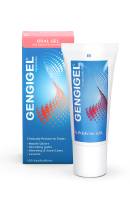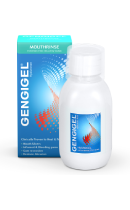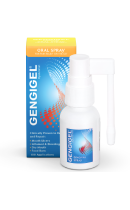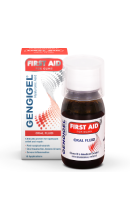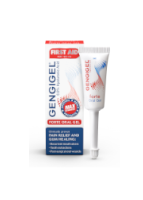Denture Abrasion
What is a denture?
A denture is a false set of teeth which can either be on a full or partial plate and made to fit every individual mouth shape. This will enable a person to bite, chew and talk without experiencing discomfort. With the elderly, complete dentures also gives an aesthetic benefit to keep a natural appearance to the face, especially in providing support to the lips and cheeks which may have collapsed after the loss of teeth.
There are an estimated 11 million denture users, and according to the charity British Dental Health Foundation, most will experience some degree of difficulty requiring intervention.
What is denture abrasion?
As people age, the mouth naturally changes, which can affect the fit of the denture. The bone and gum ridges can shrink which may result in poorly fitting dentures. This can develop into problems such as infections, sores and gum swelling. This also applies to people getting used to wearing dentures for the first time who may experience soreness or minor irritations and collectively this is known as dental abrasion.
Who gets denture abrasion?
People who have a new denture, taking medication that causes a dry mouth thereby irritating the gums, poorly fitting plates, someone who has a weight loss or had an operation to the mouth which may change the shape of the oral cavity.
Abrasion can develop into other conditions such as denture stomatitis which is commonly attributed to people not resting their mouth sufficiently i.e. keeping false teeth in overnight or not cleaning and removing food debris after meals.
What are the symptoms of denture abrasion?
The symptoms of a sore mouth from denture wear appears red and swollen with pin-points of bleeding. This usually occurs beneath an upper denture. Sometimes angular cheilitis can coexist (sore inflammation of the corners of the mouth) which is often associated with Candida albicans. Stomatitis rarely develops under a lower denture. The affected mucosa is often sharply defined in the shape of the covering denture.
What are the causes of denture abrasion?
The major risk factor for the development of denture abrasion is wearing an upper complete denture for a long period and not cleaning the dentures regularly. Other causes include dry mouth, diabetes and an older denture. A high carbohydrate diet will also play a part in abrasion to the palate.
The area under a denture where the surface rests against the palate (the upper denture) is less exposed to the cleansing action of saliva and is therefore more acidic and likely to develop bacteria and/or yeasts to the surface of the plate. This in turn may cause inflammation and infection.
Other reasons behind denture abrasion, aside from infection, is allergies caused by the materials in the denture, or a poor response to substances within denture adhesives.
What other denture problems can cause soreness to the gums?
Gum disease (also known as gingivitis) is caused by a build-up of plaque along and under the gum line. This will make gums feel tender and is likely to cause them to bleed which in turn can lead to infections.
Stomatitis or oral thrush is a yeast infection that can develop under the dentures causing red sore areas. This infection may spread to the corners of the mouth that can make it painful and difficult to put in or remove the denture. If untreated, stomatitis may lead to poorly fitting dentures in the future. Treatment is by antifungal medication and improved dental hygiene.
Who can get denture stomatitis?
Denture wearers are most likely to be affected, along with people who have problems keeping their mouth clean. Diabetics and anyone who takes steroids, either through inhalers or by mouth, may also have problems. Some antibiotics are responsible for causing thrush as well as a dry mouth. Many people find that taking certain antibiotics encourages the infection to come back, especially if taken over a long period of time.
What can be done to prevent denture problems?
- Good daily oral hygiene regardless if there are no natural teeth in the mouth.
- Remove the denture and gently brush the tongue, gums, cheeks and the roof of the mouth with a soft-bristled brush each day. This will help remove plaque and stimulate circulation in the tissues. It can also help reduce the risk of irritation and bad breath.
- Rinse the dentures before brushing to remove any loose food or debris.
- Use a soft bristle toothbrush and a non-abrasive cleanser to gently brush all the surfaces of the dentures so they don’t get scratched.
- Do not use toothpaste since it can be too harsh for cleaning dentures. Instead soak for at least ten minutes in an anti-bacterial solution such as the Secure Denture Cleaner.
- Rinse the mouth with lukewarm salt water to help clean the gums and then use Gengigel Mouthrinse to prevent any infection.
- Eat a well-balanced, nutritious diet to help keep the body and mouth healthy.
- Don’t smoke. This can increase the growth of yeast in the mouth and the risk for infections and gum disease.
- Give the mouth a rest. It’s important to remove dentures at night to give the gums and mouth a rest. Never leave dentures in the mouth for 24 hours at a time.
- Visit a dentist every six months for a check-up regardless of no obvious problems. People should also visit a dentist if the denture becomes loose as this can cause irritation, sores and infection.
To relieve denture abrasion
For denture abrasion the most appropriate Gengigel products to use is the Gengigel Mouthrinse for soothing the gums as well as preventing inflammation and infection. The Gengigel Gel is ideal to maintain healthy gums under a denture and will also aid symptoms of dry mouth and keep the plate stable in the mouth thus reducing possible irritation.
 Buy Online
Buy Online


